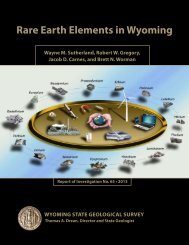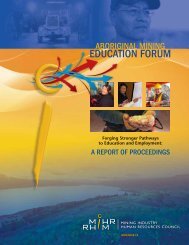RLB_UK_Riders_Digest_2013
RLB_UK_Riders_Digest_2013
RLB_UK_Riders_Digest_2013
You also want an ePaper? Increase the reach of your titles
YUMPU automatically turns print PDFs into web optimized ePapers that Google loves.
<strong>UK</strong> CONSTRUCTION INFORMATION<br />
Tax Savings<br />
Relief is given at 150% for qualifying expenditure, which is available to<br />
<strong>UK</strong> companies only.<br />
Where clients hold property as an asset, such as a retail portfolio, the<br />
full 150% must be claimed in the year in which the expenditure was<br />
incurred. In cash terms this equates to a 36% saving (assuming 24%<br />
corporation tax) on all expenditure claimed on land remediation relief.<br />
Where clients trade property (e.g. developers), a 50% benefit is realised<br />
as all construction expenditure (100%) is fully written off in any event<br />
to the profit and loss account, therefore enabling the extra over 50%<br />
to be claimed. The extra over 50% relief is only available to claim on<br />
disposal of the property. In cash terms this equates to a 12% saving<br />
(assuming 24% corporation tax) on all expenditure claimed on land<br />
remediation relief.<br />
The only restrictions are that a company is not entitled to claim:<br />
<br />
<br />
grant funding or,<br />
<br />
order to account for the cost of remediation works and stated as<br />
such in the purchase agreement.<br />
Land Remediation/Derelict Land Tax Credit<br />
If a <strong>UK</strong> company makes a loss for an accounting period in which<br />
they incur expenditure on remediating contaminated or derelict<br />
land, they may elect to receive a payable credit from HMRC. The<br />
amount of tax credit which can be claimed is 16% of the qualifying<br />
LRR for the accounting period the claim relates to. For both<br />
investors and developers, the cash return is equivalent to 24% of the<br />
expenditure incurred (16% x 150%).<br />
Completed developments<br />
Retrospective claims are available on expenditure incurred within two<br />
years from the year end within which the expenditure was incurred.<br />
For example, if a client’s year end is 31 March <strong>2013</strong> any expenditure<br />
incurred after 1 April 2011 can qualify for tax relief, so immediate tax<br />
savings can still be realised.<br />
Planned developments<br />
If this tax relief is factored into the appraisal, project viability can be<br />
improved.<br />
Below are a few examples of the types of works where we have<br />
successfully claimed land remediation relief:<br />
<br />
<br />
works qualify for land remediation relief, including all associated<br />
works (e.g. prelims, professional fees, prolongation etc.).<br />
<br />
<br />
<br />
<br />
<br />
The 2009 budget included amendments to the current legislation<br />
which came into effect on 1 April 2009. This tightened the qualifying<br />
criteria for LRR and removed some items from eligibility.<br />
82






